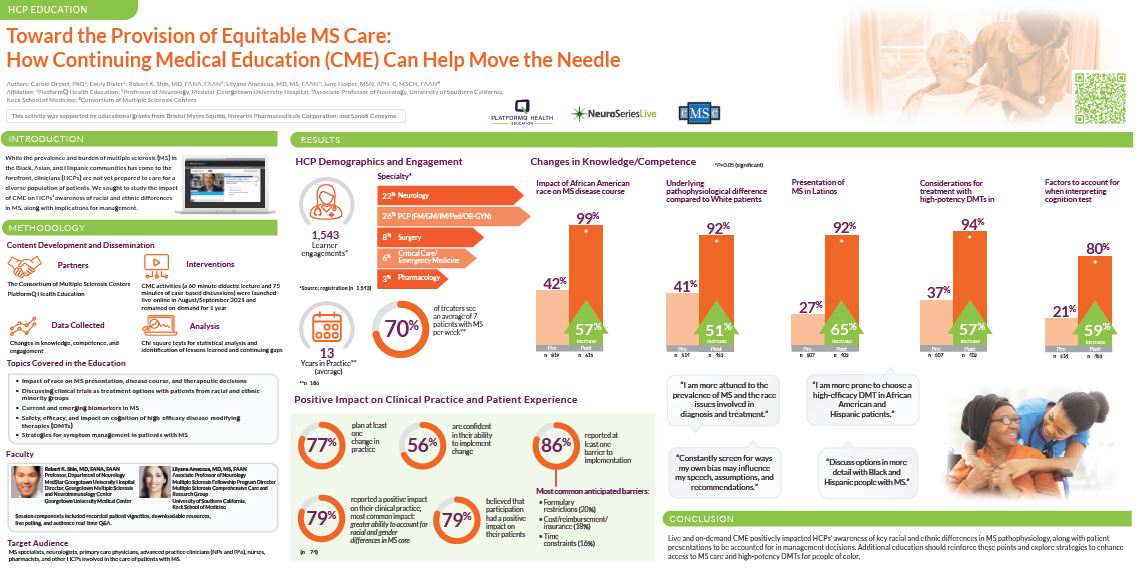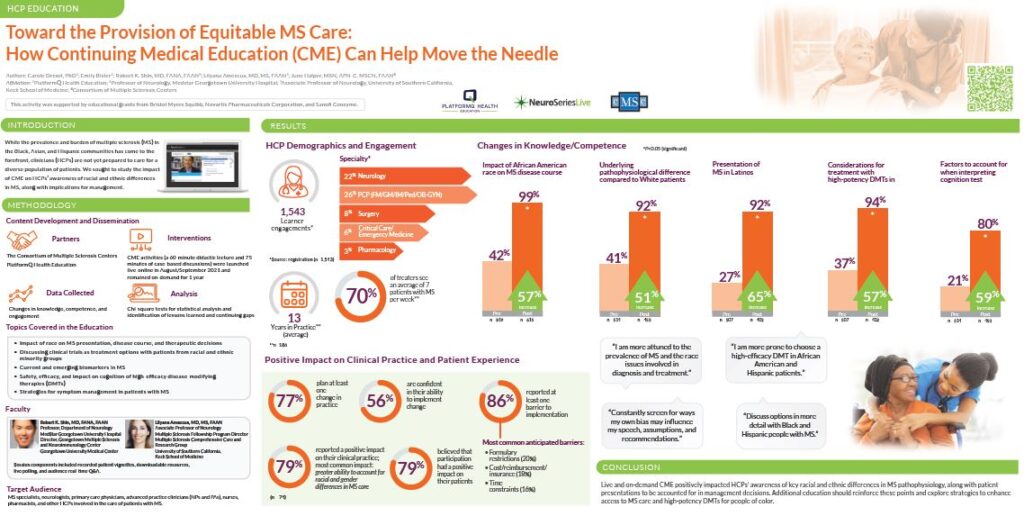There is a high burden of multiple sclerosis (MS) in the Black, Asian, and Hispanic communities, yet clinicians are often not prepared to care for diverse populations of patients. To address this issue, PlatformQ Health and the Consortium of Multiple Sclerosis Centers partnered to develop CME activities, including a 60-minute lecture and 75-minutes of case-based discussions.
Led by faculty from Georgetown University Hospital’s Multiple Sclerosis and Neuroimmunology center and the Multiple Comprehensive Care and Research Group at University of Southern California Keck School of Medicine, the program was attended by neurologists, MS specialists, primary care physicians, advanced practice clinicians, nurses, pharmacists, and other providers.
Program results were shared in a poster session at the 2023 Consortium of Multiple Sclerosis Centers (CMSC) annual meeting.

Click here to download the full poster.
The program had 1,543 learners, 22% of whom specialize in neurology and 70% of whom treat an average of seven MS patients a week. On average, learners have 13 years in practice.
Surveys conducted before and after the session showed a demonstrable impact on clinical practice and patient outcomes. 77% of learners plan at least one change in their practice as a result of the program, while 79% reported a positive impact on their clinical practice, including greater ability to account for racial and gender differences in MS care. 79% of learners reported the information they gleaned during the session will have a positive impact on their patients.
Competence improvements were also significant, including improved knowledge of:
- 57% increase in knowledge about the impact of race on disease course
- 51% increase in knowledge about underlying pathophysiological differences by race
- 65% increase in knowledge about disease presentation in different ethnic/racial populations
Live and on-demand CME programs positively impact providers’ awareness about key racial and ethnic differences in the diagnosis and treatment of MS. Additional education is also warranted to improve access to MS care.

